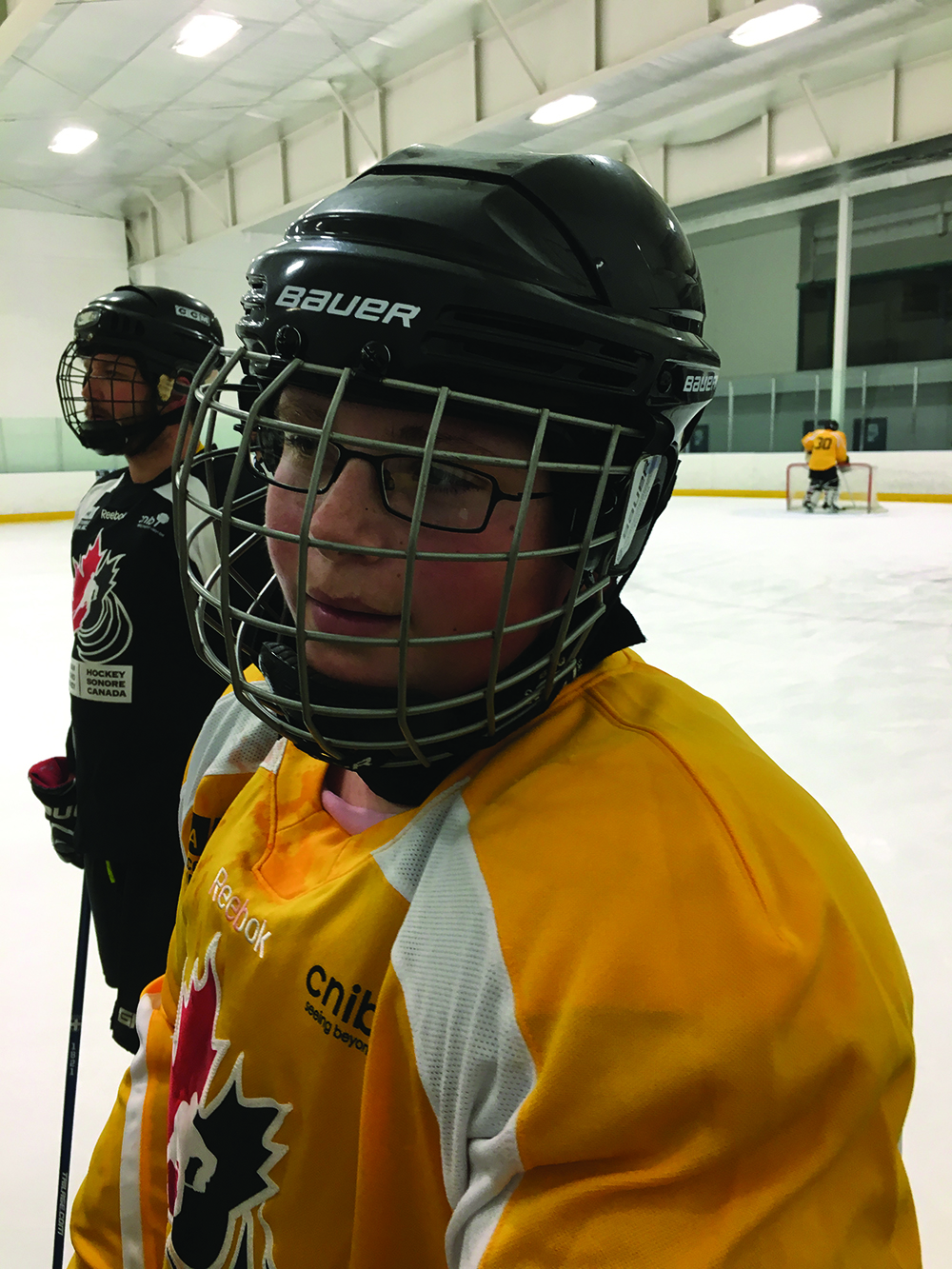By: Robert Shawn
Hockey is as Canadian as maple syrup or ketchup chips. Almost every little boy and girl in this country, at one point or another, has delved into our nation’s national winter sport.
Steve Joy is no different. His involvement in the game goes back 37 years when he began playing at the age of five. He transitioned into coaching hockey in the early 90’s and continues to coach kids of all ages and skill level to this day, most recently with CBR Minor Hockey.
A Family Affair
For Steve, hockey has become a family affair. His two sons and step-son have all laced up their skates and participated in minor hockey, often under his tutelage. While Steve’s two eldest children have grown out of the minor hockey program, his youngest, Brandon, is still very much in love with the game. Brandon, however, is not like the other kids that hit the ice. He has a degenerative vision problem that could potentially end his hockey playing days for good. Steve aims to make sure this never happens. 
Brandon, 14, has retinitis pigmentosa, a degenerative eye disease that causes severe vision impairment due to the progressive degeneration of the rod photoreceptor cells in the retina. To anyone without a medical degree, this means his peripheral vision is diminishing and will continue until he is completely blind. When this will happen is anyone’s guess, but it has not stopped Brandon from playing his favourite sport for the last seven years. “Brandon has never really had to adapt to the game because of his condition. He hasn’t known any other way of playing hockey.” Joy says of his son’s abilities. “Throughout the years, you could see that he was beginning to have trouble seeing the puck the closer it got to him, but if he has his eyes on the puck, he can play. No issue at all.”
This past summer, Brandon and his dad were invited to attend the Canadian Blind Hockey Association’s blind hockey camp in Vancouver, where players from all over the country of varying levels of blindness gather and enjoy Canada’s game.
“It was amazing to see players walk into the arena with walking canes and seeing-eye dogs, and then skate up and down the ice, handle a puck, dump it on the net and then head back to his bench for a change up.”
On and Off the Ice
The camp lasted five days where players spent time practicing drills, playing each other, and going over aspects of the game both on and off the ice.
Steve admits that the first question he gets whenever he mentions the concept of blind hockey is, ‘how does it work?’
“It’s pretty much the same as ‘regular’ hockey with a few differences. The puck they use, for example, is larger and is made of metal with bearings inside so it makes noise as it skates across the ice. Nets are about a foot shorter in order to try and ensure players keep their sticks as low as possible and goalies are also required to be blindfolded at all times regardless of their sight limitations.”
 To make up for their lack of sight, players rely on their other senses to guide them, tapping the ice with their sticks to let each other know where they are. “You really have to see it for yourself.”
To make up for their lack of sight, players rely on their other senses to guide them, tapping the ice with their sticks to let each other know where they are. “You really have to see it for yourself.”
His experiences in Vancouver, made Joy think, “What happens when the day comes where my son cannot play hockey? How can I tell him that he can’t play? And how many people in Newfoundland would love to play hockey, but can’t?”
Blind Hockey League
In talking with Matt Morrow, head of Blind Hockey Canada, Steve is now in the early stages of setting up a blind hockey league in this province.
“I’ve been speaking to CBR Minor Hockey about the possibility of adopting it into their hockey program.” Joy mentions. “I’ve also been getting support from organizations like the Canadian National Institute for the Blind and the CBS Lions Club, and am open to discuss this idea with anyone willing to help out.”
Steve is optimistic that a blind ice hockey league would work in Newfoundland. “If I can get 12-15 people out on the ice for an hour a week, that’d be fantastic. There’s got to be at least a dozen people that would love to play hockey but have never had the opportunity. It doesn’t matter what age you are or what your skill level is, I want everybody whoever wanted to play the sport to try it.” In terms of his future goals for the league, “I would love to see enough people interested for a complete team that can travel and play in tournaments representing Newfoundland.”
For more information on blind hockey in Newfoundland, you can contact Steve Joy at [email protected]

